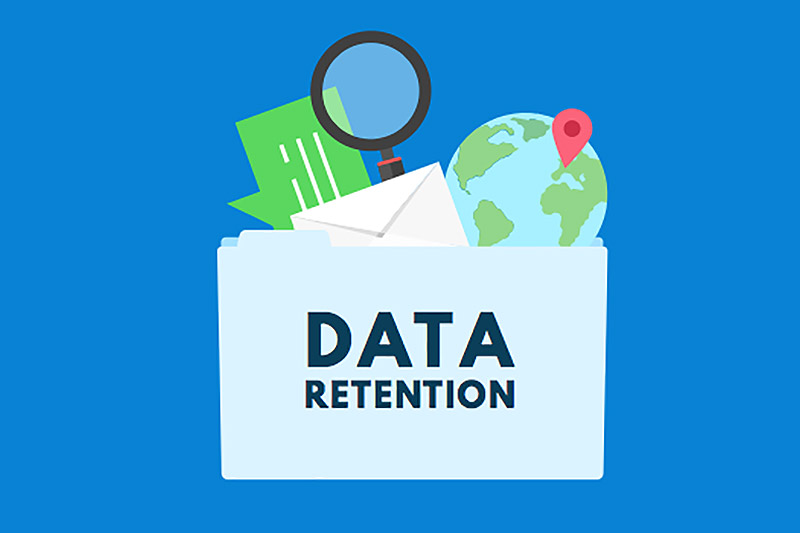Data Retention Guidance Notes provide essential direction for organisations in England and Wales on managing data retention in compliance with legal requirements. This comprehensive guide explores key principles, legal considerations, and best practices for developing and implementing effective data retention policies.
Introduction to Data Retention Guidance Notes
Data Retention Guidance Notes serve as a framework for organisations to navigate the complexities of data protection laws, ensuring data is retained only for necessary periods while safeguarding individuals’ privacy rights.
Legal Framework in England and Wales
Under the UK General Data Protection Regulation (UK GDPR) and the Data Protection Act 2018, organisations must justify the retention of personal data, adhere to principles of data minimisation and storage limitation, and ensure data security and confidentiality.
Purpose of Data Retention Guidance Notes
The primary purposes of Data Retention Guidance Notes include
- Compliance: Helping organisations comply with legal requirements and regulatory expectations regarding data retention.
- Risk Management: Mitigating risks associated with data breaches, identity theft, and non-compliance penalties by establishing clear retention policies.
Key Components of Data Retention Guidance Notes
- Legal Requirements: Outlining statutory obligations and regulatory guidance on data retention periods, categories of data, and lawful bases for processing.
- Data Categories: Classifying data types (e.g., personal, financial, operational) and specifying retention periods based on their sensitivity and legal requirements.
- Retention Periods: Defining how long different categories of data will be retained, considering legal obligations, business needs, and archival purposes.
Developing Effective Data Retention Policies
Steps for developing Data Retention Policies include
- Risk Assessment: Assessing risks associated with data processing and retention to inform policy development.
- Stakeholder Engagement: Involving key stakeholders, including legal, IT, and compliance teams, to ensure comprehensive policy development and implementation.
- Consultation: Consulting with legal advisors and regulatory bodies to align policies with current data protection laws and industry standards.
Implementation and Monitoring
- Policy Implementation: Deploying policies across the organisation and ensuring staff awareness and compliance through training and communication.
- Monitoring and Review: Conducting regular audits and reviews to evaluate adherence to the Data Retention Guidance Notes and update policies as necessary.
Benefits of Compliance
Adhering to Data Retention Guidance Notes offers several benefits
- Legal Compliance: Demonstrates adherence to UK GDPR and other data protection laws, reducing legal and reputational risks.
- Efficiency: Streamlines data management processes, improves response times to data subject requests, and reduces storage costs.
Case Studies and Examples
Explore case studies of organisations that have successfully implemented Data Retention Guidance Notes, highlighting best practices in data governance and compliance.
Conclusion
Data Retention Guidance Notes provide essential direction for organisations in England and Wales to manage data responsibly, comply with legal requirements, and uphold individuals’ rights to privacy. By establishing clear policies and procedures, organisations can enhance data protection practices and mitigate risks associated with data handling.
What are Data Retention Guidance Notes?
Data Retention Guidance Notes are documents that provide organisations in England and Wales with guidelines and best practices for managing the retention, storage, and disposal of data in compliance with legal requirements.
Why are Data Retention Guidance Notes important?
Data Retention Guidance Notes help organisations ensure they retain data only for as long as necessary, reducing risks associated with data breaches, regulatory non-compliance, and maintaining individuals’ privacy rights.
Who issues Data Retention Guidance Notes in the UK?
Data Retention Guidance Notes may be issued by regulatory bodies like the Information Commissioner’s Office (ICO) or industry-specific organisations to help businesses navigate data protection laws effectively.
What legal principles do Data Retention Guidance Notes cover?
They cover principles such as data minimisation, storage limitation, and accountability under the UK General Data Protection Regulation (UK GDPR) and the Data Protection Act 2018.
How do Data Retention Guidance Notes impact data management practices?
They provide clarity on how organisations should classify data, determine retention periods, and implement secure storage and disposal methods, thereby improving data management practices.
Are Data Retention Guidance Notes mandatory for all organisations?
While not mandatory documents themselves, following Data Retention Guidance Notes helps organisations comply with legal obligations and demonstrate adherence to data protection laws.
What factors should organisations consider when developing Data Retention Policies based on Guidance Notes?
Factors include the nature of the data collected, its sensitivity, statutory retention periods, business needs, and legal bases for processing.
How often should organisations review and update their Data Retention Policies based on Guidance Notes?
Data Retention Policies should be reviewed regularly, at least annually, or whenever there are changes in legislation or business practices that may impact data handling.
Can Data Retention Guidance Notes help organisations prepare for data audits and inspections?
Yes, by providing structured guidelines and best practices, Data Retention Guidance Notes assist organisations in preparing for audits and ensuring they can demonstrate compliance with data protection laws.
Where can organisations find resources to help implement Data Retention Guidance Notes?
Resources include guidance from the ICO, legal advisors specialising in data protection, industry associations, and training programmes focused on data management and compliance.
- Self Employed Consultant Agreement (Long) – Provider Version - August 14, 2024
- Website Privacy Policy – First Party Cookies + Analytics - August 10, 2024
- Templates For Supply Of Plastic Packaging Subject To Plastic Packaging Tax - August 9, 2024










